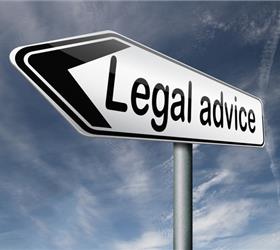Posted: Monday, 10 March 2014 @ 11:45

One question that I get asked a lot is: “When I’m dealing with a dispute by email, when should I use the phrase without prejudice?
Many business people know they should use the term but are not sure when and what it means. Some write “without prejudice” on all correspondence and others don’t use the term at all.
There are dangers in using the term incorrectly that might actually weaken your position if the dispute escalates into litigation.
What does without prejudice mean?
By marking correspondence as without prejudice, you are making it clear that the correspondence cannot be shown to a court in any litigation. Similarly, you can use this phrase in a meeting or on the phone and it has the same effect.
It’s important to use this phrase if you are going to admit something in the correspondence or conversation, or make an offer, that you would not want a court to know about.
An example
Consider this example: you’re engaged in a project and your customer says that you made a mess of it and won’t pay. One part of the project didn’t go as well as you expected and you think it may have been your fault. You would be prepared to accept a smaller payment for the sake of a quick settlement. However, if it went to court, you would certainly argue that you didn’t mess up at all and are entitled to be paid in full.
In this case, you could admit in without prejudice correspondence that there were problems and that you would be prepared to offer a substantial discount.
If you wrote that without using the phrase without prejudice, then your opponent could rely on that letter in court saying you have admitted the problems and were even willing to reduce your fees considerably. It will then be much more difficult for you to argue that you should be paid in full.
So, is it best to use the phrase without prejudice in all correspondence? Not at all! Sometimes you would certainly want a letter to be shown to a court.
In the above example, you might want to send a letter clearly denying it was your fault. You might want to deny that there were any problems or put the blame for any problems firmly on your customer. If so, it’s best not to use the phrase without prejudice.
You can then show this letter to a court and say you made it clear at the outset that you denied any liability. If you had marked the letter without prejudice, you customer could even claim that you have never denied their complaints which has made litigation inevitable and could ask the court to order you to pay more in costs – remember, in general, a court doesn’t get to see or know what was in any without prejudice correspondence or conversations.
Guidance
The general rules are these:
- If you want to admit anything in negotiations but not to a court, make sure you use the term without prejudice.
- If you want to make an offer that you would not want a court to know about, make sure you use the term without prejudice.
- If you want to set out the strengths of your case clearly, don’t use the term without prejudice.
Another thing worth noting is that you can use both approaches to your best advantage, as solicitors do. You can send one letter denying responsibility and setting out your position (without using the term without prejudice) and, at the same time, send another letter headed without prejudice admitting that you may have been at fault and making an offer. Only the first letter will be shown to the court and the second may help lead to a quick settlement.
Negotiation can be a tricky thing to deal with. You need to set out the strengths of your case and the weaknesses of your opponent’s case. You also need to consider how to deal with their strong points and the weaknesses in your case, and it’s often best to admit your weak points early on and concentrate on your strongest points.
If someone’s made a claim against you, or you want to make a claim, and it’s at all complicated, you might need legal assistance from the outset. If you think you might benefit from legal help, don’t hesitate to get in touch.
Gary Cousins
Business Solicitor
For free advice on this topic please call us on 0845 003 5639.
Blog by Gary Pascual
Gary has been providing legal advice to shareholders, directors and business owners for over 25 years. Specialising in dispute resolution Gary is based in Birmingham with clients throughout the UK and overseas.
View profile
This blog is not intended to constitute legal advice, nor is it intended to be a complete and authoritative statement of the law, and what we say might be out of date by the time you read it. You should always seek legal advice to confirm whether or how any information in this article applies to your particular situation. We offer a
free telephone consultation to discuss your particular circumstances.